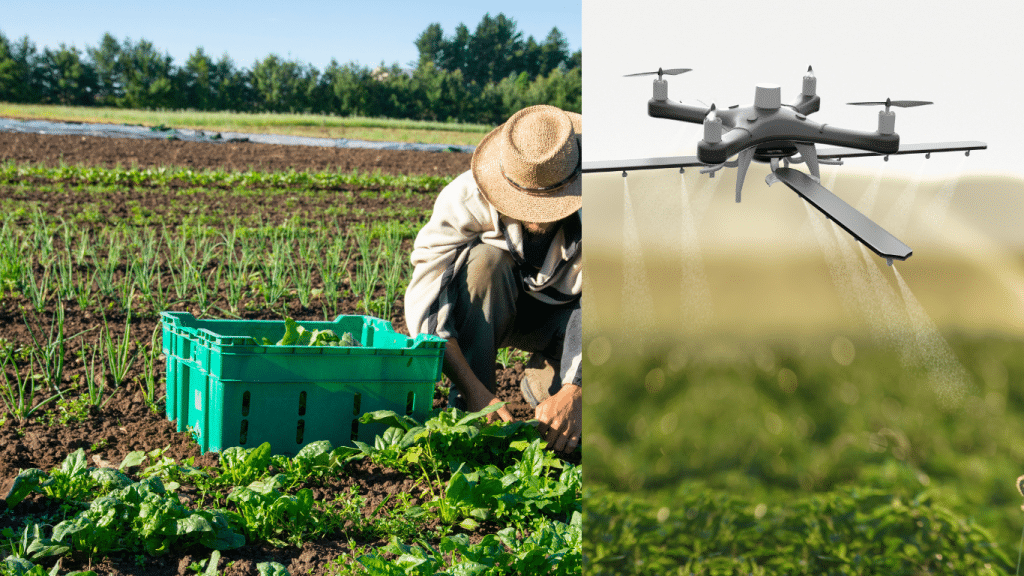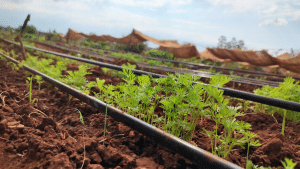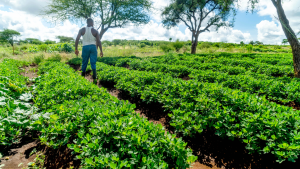
The juxtaposition of conventional farming next to an organic farm raises pertinent questions about the impact of such practices on organic farming and the surrounding environment. To delve into this issue, let us explore the potential ramifications in depth.
1. Pesticide Drift
One of the most immediate concerns is pesticide drift. Conventional farming often relies heavily on synthetic pesticides and herbicides, which can easily drift through the air and contaminate neighbouring organic crops. This poses a significant threat to organic farms’ commitment to organic standards and the health of their produce.
2. Soil Degradation
Conventional farming practices, such as intensive tillage and heavy chemical usage, can lead to soil degradation over time. This degradation not only affects the fertility and structure of the soil but also disrupts the delicate balance of microorganisms essential for organic farming.
3. Water Contamination
The runoff from conventional farms, laden with synthetic fertilisers and pesticides, can seep into water bodies, contaminating local water sources. This contamination not only jeopardises the health of aquatic ecosystems but also poses risks to human health and agricultural sustainability. Organic farms, reliant on clean water for irrigation and ecological balance, may find its resources compromised by neighbouring conventional practices.
4. Biodiversity Loss
Organic farms like Ambokili Farm thrive on biodiversity, fostering a rich tapestry of plant and animal life essential for ecological harmony. However, conventional farming methods often prioritise monoculture and chemical inputs, leading to biodiversity loss in surrounding areas. This loss can disrupt pollination patterns, degrade natural habitats, and diminish the resilience of ecosystems, ultimately impacting Ambokili Farm’s ability to maintain a diverse and resilient agricultural landscape.
5. Community Impact
Beyond ecological concerns, the emergence of conventional farming practices near organic farms may also have socio-economic repercussions. Organic farming serves as a catalyst for community development, providing sustainable livelihoods and fostering local resilience. The encroachment of conventional methods may undermine these efforts.
In light of these challenges, it is imperative to recognise the interconnectedness of agricultural practices and their broader impacts on the environment and communities. While the emergence of conventional farming near organic farms presents challenges, it also underscores the urgent need for dialogue, collaboration, and advocacy for sustainable agriculture.
As stewards of the land, it is incumbent upon us to champion practices that prioritise ecological integrity, community well-being, and long-term sustainability. By raising awareness about the implications of conventional farming on organic farms like Ambokili Farm, we can galvanise support for holistic approaches to agriculture that nurture both the planet and people.
The tale of Ambokili Farm serves as a poignant reminder of the delicate balance between progress and preservation in our agricultural landscapes. As we navigate the complexities of modern farming, let us heed the lessons learned from organic pioneers like Ambokili Farm and strive towards a future where sustainability reigns supreme.






